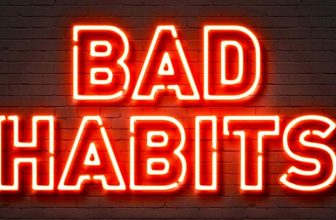
It’s the most booze-ful time of the year! Let’s face it, with impending lockdowns and cancelled festivities, we can all be tempted to reach for the bottle a little more often than we did pre-Pandemic. In fact, during the first week of the pandemic, alcohol sales went up 54%. And in general, alcohol consumption during the pandemic has risen 14% compared to pre-COVID drinking.
It’s clear that alcohol is more of a problem than usual these past two years, but just why should we cut down on our drinking, I mean it’s New Year’s Eve, now right? Well, you should know a few things first, so follow on to find out in 5 Ways Alcohol Affects Your Hormones and the Cancer Connection!
1. Blood Sugar Hormones
Your body gets energy from food, by way of blood sugar. That blood sugar is controlled by hormones called insulin and glucagon, both produced by the pancreas.
Insulin brings blood sugar down, while glucagon raises it. When blood sugar runs low and is not corrected by glucagon stores, one can pass out or even have brain damage!
So what is the connection between alcohol and blood sugar? In the short term, alcohol causes hypoglycaemia (low blood sugar); again this can cause one to lose consciousness, or worse.
In the long-term, chronic heavy drinking can increase the body’s glucose levels and create glucose intolerance, increasing the chance of developing diabetes.
All of this is music to cancer’s ears – increased blood sugar has a proven connection to malignant melanoma, pancreatic, and urinary-tract cancers.
2. Reproductive Hormones
The reproductive system is primarily controlled by androgens (male hormones) and estrogens (female hormones).
These hormones help facilitate all things reproductive: sexual maturation, sperm development, menstrual cycles, and pregnancy, just to name a few.
When alcohol is consumed excessively, it can reduce reproductive hormones, change sperm structure, cause early menopause, or alter menstrual cycles. Importantly, increased alcohol consumption has been directly linked to ovarian and breast cancers.
3. Booze & Bones
You’ve probably heard that calcium is good for your bones and teeth. But, calcium also is an important facilitator in communicating between cells.
The parathyroid and calcitonin hormones are key players in calcium regulation in the body. Even acute alcohol consumption can have an effect on the calcium system, resulting in: nutritional deficiencies, PTH (parathyroid hormone) deficiency and increased calcium excretion, impaired vitamin D metabolism, and inhibited bone-forming cell activity.
All of these factors lead to increased osteoporosis and bone fractures. While alcohol doesn’t seem have a direct link to bone cancer; many cancers are treated with therapies that subsequently weaken the bones. Because of this, it’s especially essential to limit alcohol consumption that would weaken bones even more so.
4. Cortisol Connection
Cortisol, known as the stress hormone, can easily be triggered by alcohol consumption. While some cortisol is helpful for the body, excess amounts can be harmful.
Alcohol is known to lead to this excess; resulting in high blood pressure, impaired bone growth, digestion, reproduction and wound healing.
Importantly, increased cortisol has been associated with increased risk of endometrial cancer. Not only that, cortisol and increased stress in general facilitates cancer to grow and spread (also known as metastasis).
5. Sleep Hormones
Although a lot of people look to the bottle as a sleep aid, alcohol actually impairs the quality of your sleep.
The two often go hand in hand – approximately 30% of those who report insomnia (poor sleep) also reported using alcohol as a sleep aid. But why doesn’t alcohol improve your sleep? The answer is in the hormones!
Many pituitary hormones are secreted during sleep; human growth hormone (HGH) is the most prevalent. HGH is the primary hormone that causes the rejuvenating properties of sleep we all love.
Studies have shown that the more alcohol one drinks, the less HGH is produced. By the same token, a person with insomnia is often found to have low levels of HGH. Now you can see how these are all interrelated!
As far as cancer risk, lack of quality sleep (which we now know can be caused by alcohol consumption) has been associated with increased odds of breast, colon, ovarian and prostate cancer.
Have you or a loved one been relying on alcohol a little too often during this pandemic? Feel free to share these tips above which remind us, it’s not the best investment attempting to drink our worries away! Have you personally found that cutting back on (or entirely abandoning) booze has helped you see an improvement in any of the above areas? Do let us know in the comments below, and feel free to join in the conversation on Facebook, Twitter & Instagram.
In the meantime, please drink responsibly this season, why not try intense, non-alcoholic drinks like Gimber? In the meantime, why not turn over a new leaf; get yourself a copy of our book; “How Squats Can Change Your Life: Supercharge Your Energy, Health, Strength and Happiness with Squats in Just 10 Minutes a Day!“, with a foreword by WWE superstar, Rob Van Dam!
Keep Fit Kingdom wishes you a very fit, and super-healthy, Happy New Year and we look forward to seeing your best you, in 2022!









